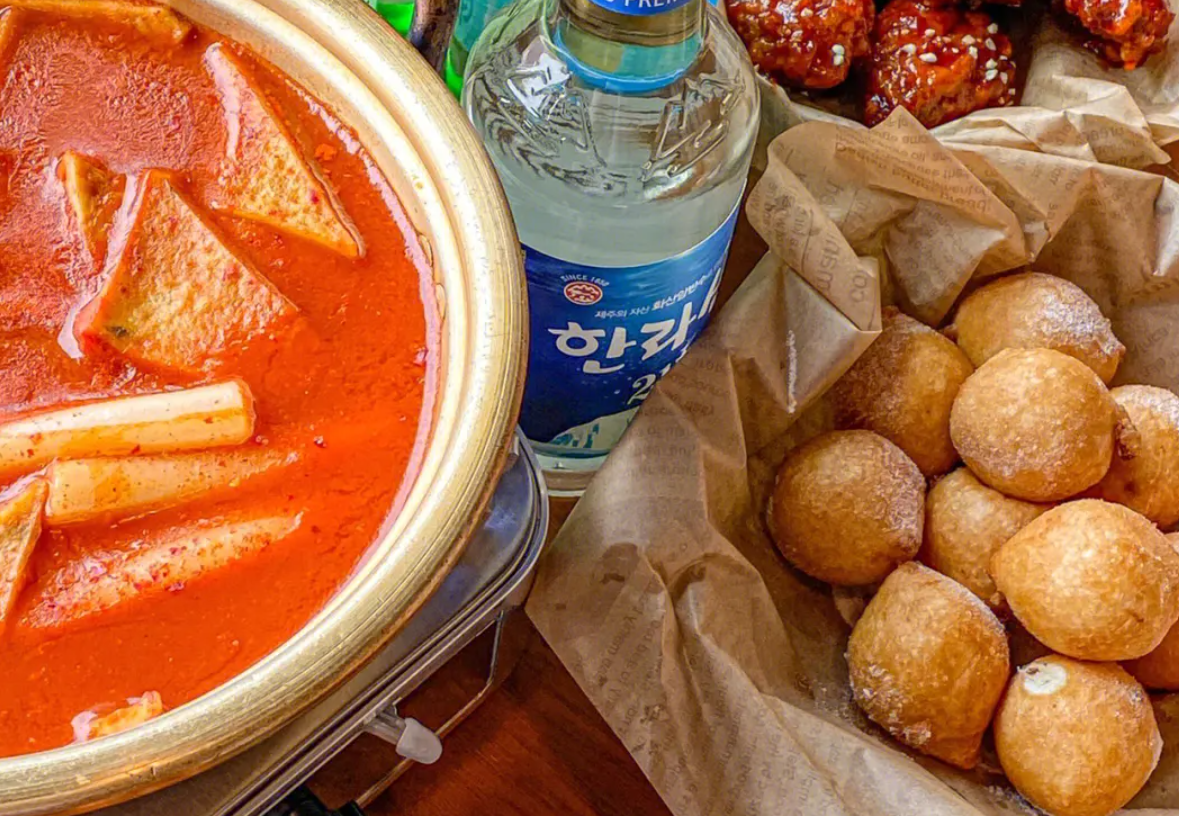
"Kim Jong UN went to secondary school in Bern and we heard that he used to travel around Europe on a Harley... So he knows the outside world very well and I think it is possible to have a dialogue with him."Innovative Korean food to bring villagers together to live a better life
The slogan "Entrepreneurship changes life" has become a reality for Hu Gang, 34. For Hu Gang, who grew up poor and relied on his own to earn college living expenses, the spicy cabbage, platycodon, and other Korean food in Yanbian, his hometown, not only boosted his wallet, but also led a good life with his fellow villagers.
Now, together with his mother Weng Guixin, Hu Gang runs a 12,000 square meter Korean food processing plant in Yanji City, Yanbian Korean Autonomous Prefecture, with seven production lines and more than 100 kinds of products,
including kimchi, beef ribs, soy products, rice cake, rice wine and seasonings. The Korean food brand founded by the mother and son has developed into a leading enterprise in Yanbian Prefecture and a well-known trademark in Jilin Province.
I made my first fortune selling kimchi on campus
Hu Gang's family economic conditions are not good, just went to Beijing university, he determined to rely on his own strength to change the life. In his second year, a familiar campus business vacated an idle warehouse of less than 10 square meters and rented it to Hu Gang at a low price. Hu Gang and several classmates together, the warehouse is simply packed into a shop, ready to sell Korean kimchi.
At first, classmates around him did not support his selling kimchi. At the time, in 2006, at his private college, Korean kimchi was still rare, and "students who had not eaten kimchi thought it was pickles and would not sell much," Mr. Hu said.
But he himself knows that the raw materials of Korean kimchi are cabbage, platycotyledon, cabbage, cucumber, radish, kelp, etc., in the pickling process, retain the nutrients of vegetables, "appetizers and healthy", so he thinks that someone will like his hometown kimchi.
The first step is the hardest. In order to find supplies, Hu Gang took a hard train seat for 30 hours from Beijing to Yanji, with 3,000 yuan borrowed from his family and classmates, to contact the kimchi manufacturer.
At that time, kimchi was still mostly in bulk, Hu Gang wholesale 200 jin shipped back to Beijing, a person to transfer a number of buses and subways, to bring kimchi back to school.
In order to open the store the next day, Hu Gang and his classmates spent the night sorting pickles. Unexpectedly, the sour and spicy aroma of kimchi wafted out of the store, attracting many passers-by to ask, and the result did not wait until the next day to open, 200 pounds of kimchi was sold out that night.
Shop opened, often people line up to buy pickles, some nearby businesses see Hu Gang's business is good, also looking for him to buy, want to sell pickles together. "Here's another chance."
Hu Gang said that kimchi is so popular on his campus, and there are more than 10 universities nearby, there is not a bigger market. He began to use a cart to pull kimchi to the surrounding university supermarket to sell.
Not only that, he also tried to sell kimchi to the big stores in Beijing. Within a year of selling kimchi, Hu Gang was the first to open a kimchi market at a supermarket near the campus. The best monthly sales can reach 70,000 to 80,000 yuan, which is not a small amount for college students more than 10 years ago.
Accumulate experience and return home to start a business
In Hu Gang's view, the wholesale and sales of kimchi when he was in college lacked economic brains, and the kimchi he bought was only sold with a small increase in price, and the profit was very low.
In his senior year, by chance, Hu Gang came into contact with a food factory in suburban Beijing to be transferred, producing beef rib, a Korean delicacy. "Where does the capital and ability to run a food factory just after graduation come from?" At first, Hu Gang was not sure. But the other party's transfer price is extremely low, which makes him decide to seize the opportunity to "fight".At that time, Weng Guixin, the mother who started working in Yanji, also founded a small food factory that processed beef ribs. Weng Guixin advised her son to return home and set up a factory with her, but Hu Gang was determined to break through in Beijing.
In the end, Weng Guixin still held the mentality of letting his son "not hit the south wall and not look back" and provided Hu Gang with 140,000 yuan of start-up capital.
Get up early and sleep late, live in a simple color steel room, participate in every link of production and sales... In the three years he has been running a food factory in Beijing, Hu Gang has grown rapidly.
In three years, he developed the poorly operated food factory from the initial 7 employees to more than 60, and the annual sales exceeded 20 million yuan from a large number of dealers.
Processing and making kimchi is Hu Gang's idea all along, the food factory has developed steadily, Hu Gang began to build a kimchi production workshop. Unfortunately, the land for the food factory was to be expropriated by the government, and the kimchi production project did not materialize.

